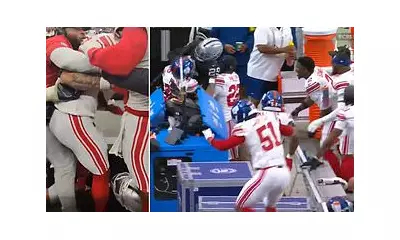
In a move set to send shockwaves through the beautiful game, football's lawmaking body, the International Football Association Board (IFAB), is poised to introduce one of the most significant tactical shifts in modern football history.
The End of Time-Wasting Tactics?
The proposed revolutionary change would see the game clock continue running during corner kicks and throw-ins, effectively eliminating one of the most frustrating aspects of modern football: strategic time-wasting. This seismic shift aims to address growing concerns about the amount of actual playing time during matches.
How The New System Would Work
Under the current laws, the referee stops the watch for various delays, including goal celebrations, substitutions, and injuries. The new proposal would extend this principle to set-piece situations, ensuring that teams trailing in matches cannot unfairly eat up precious minutes through slow set-piece execution.
This potential change comes directly from football's highest technical authority. IFAB's annual business meeting on November 25th will see members from FIFA and the four British football associations debate this groundbreaking proposal among other potential law changes.
A Response to Declining Playing Time
The initiative follows alarming statistics revealing that the actual playing time in football matches has plummeted to worryingly low levels. Recent data suggests the ball is in play for just over half of the official 90 minutes in many competitions, with time-wasting at dead-ball situations being a significant contributor.
This isn't the first time IFAB has addressed time-wasting concerns. The introduction of new substitution protocols and stricter injury management during the 2022 World Cup in Qatar successfully increased average playing time to almost an hour per match, demonstrating that regulatory changes can have a profound impact.
What This Means for The Game
If approved, this change would represent the most fundamental alteration to football's timekeeping since the introduction of stoppage-time calculations. It would:
- Dramatically reduce opportunities for tactical time-wasting
- Increase actual in-play minutes significantly
- Force teams to develop new set-piece strategies
- Create more end-to-end action for supporters
- Potentially lead to higher scoring matches
The football world now awaits the November meeting with bated breath, as what happens next could forever change how the clock ticks in the world's most popular sport.





